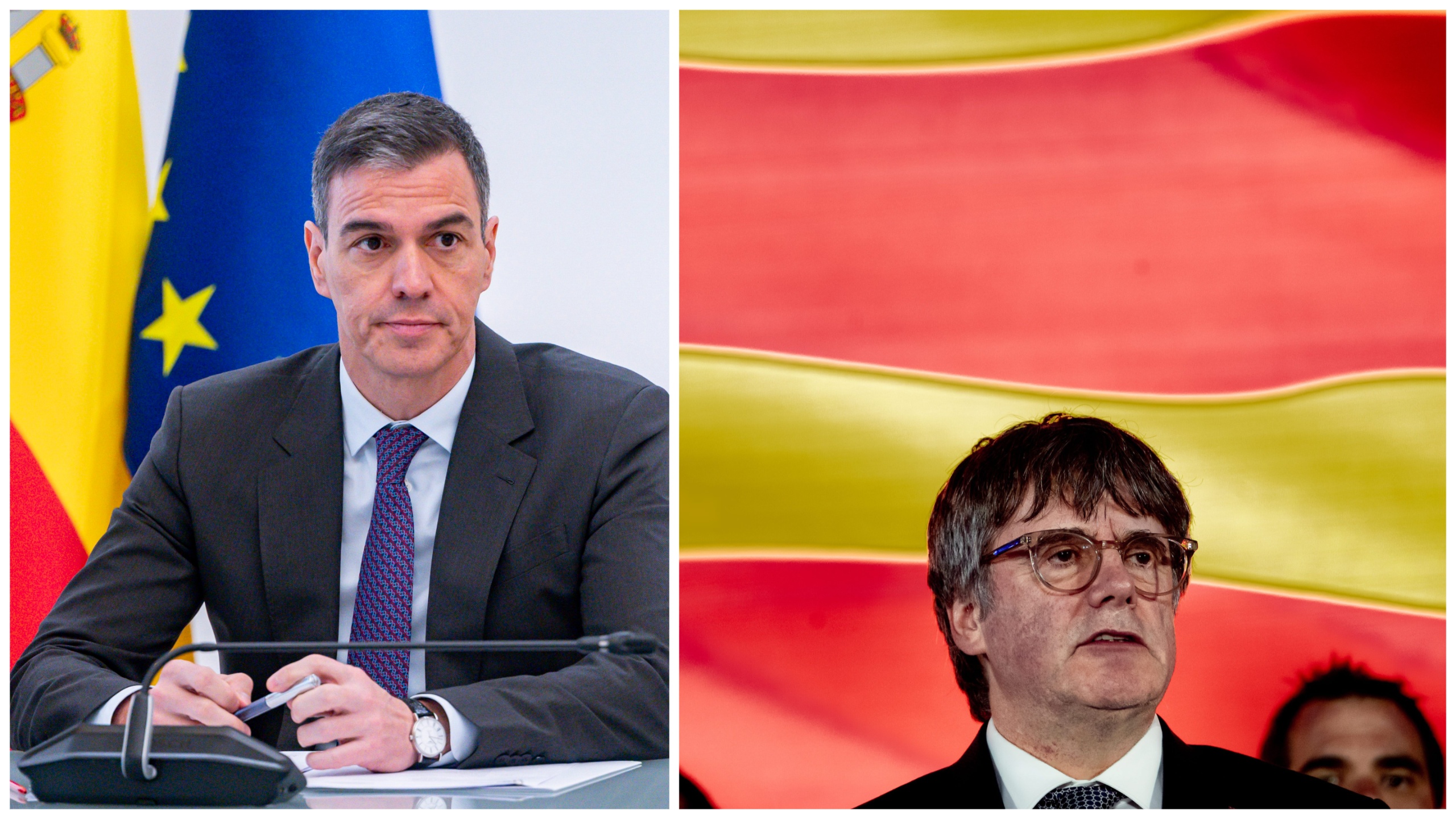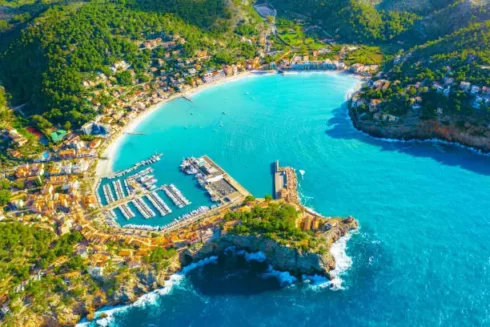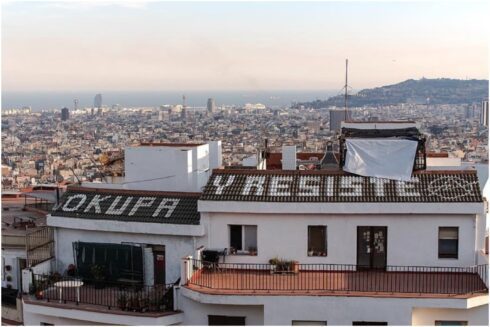CATALUNYA, Spain’s northeasternmost region, will head to the polls this Sunday for a critical regional election vote that could have profound political consequences at a local and national level.
Sunday’s ballot is likely to determine the stability of Pedro Sanchez’s Socialist-led coalition government and provide a litmus test for the strength of a pro-independence movement that reached its nadir seven years ago with an infamous illegal unilateral referendum bid.
Polls suggest that the Catalan branch of the socialist PSOE party, led by Salvador Illa, could become the first pro-unity party to lead the Generalitat de Catalunya in over 14 years as voters turn away from recent years of chaos and focus on key issues aside from independence.
The snap election was called by incumbent Catalan president Pere Aragones, a member of the left-wing pro-independence Republican Left (ERC) party, after his budget was voted down by opposition parties in parliament.
His ERC party had governed Catalunya since 2021 in coalition with Junts, the conservative pro-independence party led by Carles Puigdemont, the former Catalan president-turned-fugitive who was the figurehead of the failed independence vote and who is the most high-profile beneficiary of Pedro Sanchez’s controversial amnesty law.
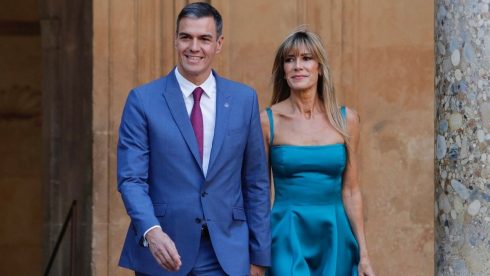
Sanchez relies on support from both the ERC and Junts to prop up his shaky coalition government, with Puigdemont, who is planning to return to Spain following the vote, warning that his party may withdraw their support at a national level if a Socialist-led regional government ignores their pro-independence views.
The vote will also likely decide whether the Spanish PM’s recent actions have calmed political tensions in the region or simply provoked greater disunity and chaos.
Sunday’s vote is likely to be followed by weeks of negotiations to form a coalition with no party likely to acquire the majority in parliament it will need to easily pass legislation.
Illa’s Catalan branch of the PSOE, the PSC, is on course to finish on top with about 28.5% of votes and 40 of the 135 seats available in the regional parliament, with Junts a close second with 21.2% of the vote and 34 seats.
The ERC are on track for 16.7% and 26 seats, the conservative Partido Popular (PP) 8.7% of the vote and 12 seats, and far-right Vox 7.6% and 10 seats.
Other minor parties behind in the polls include the left-wing Comuns Sumar alliance, the far-left Popular Unity Candidacy (CUP) and a new far-right party, Alianca Catalana.
Here is all you need to know about the main parties and candidates in contention for Sunday’s crucial election:
PSC (Catalan Socialist Party)

The Catalan branch of Pedro Sanchez’s ruling PSOE Socialist party is on course to secure the most votes and seats on Sunday, although they will have to find a coalition partner to help them govern.
Their candidate, Salvador Illa, told voters that a vote for him would be an opportunity to ‘unite’ the region and turn the page away from a ‘lost decade’ of chaotic and unstable rule led by pro-independence parties.
He has vowed to shun the independence question and instead focus on improving the region’s ‘neglected’ public services.
Experts claim that a PSC-led government would represent a ‘change of cycle’ following years of pro-independence dominated rule.
Illa, a former health minister who served in government during the Covid-19 pandemic, wants to expand Barcelona’s El-Prat Airport, improve the commuter rail network, invest in new highways and build over 4,000 homes per year to solve an acute housing crisis.
At a national level, success for the PSC would likely constitute a vow in faith in Pedro Sanchez following his amnesty law and recent five-day hiatus from public activities in response to ‘right-wing harassment’ of his wife.
Junts per Catalunya (Together for Catalunya)
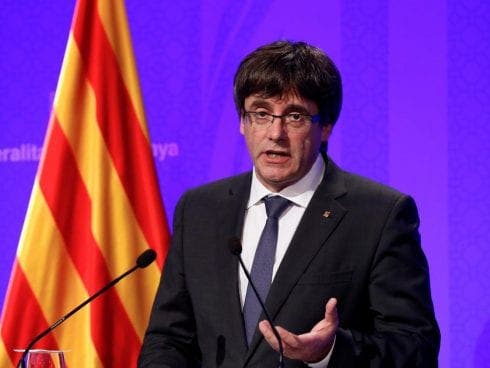
Conservative, pro-independence Junts are led by Carles Puigdemont, the former Catalan president who was forced to leave Spain as a fugitive from justice after leading the October 2017 failed illegal referendum bid that divided the country.
Puigdemont, 61, fled the country on the backseat of a Skoda and has lived in Belgium ever since, but has vowed to return to his home nation in the aftermath of Sunday’s election.
He is the most high-profile beneficiary of Sanchez’s amnesty law – but has been forced to operate his campaign from a region of southern France known historically as Northern Catalunya as the law has not yet come into force.
One of Puigdemont’s key campaign pledges is that he will be able to extract more pro-independence concessions from Sanchez thanks to the government’s reliance on Junts’ seven seats in the national Congress to pass legislation.
He also wants to hold another official referendum on Catalan independence, although recent polls have suggested that support for political autonomy is waning as voters grow tired of independence discourse.
Junts’ general secretary, Jordi Turull, recently linked immigration with crime levels in a speech, adding that Catalunya needed to be able to deport immigrants who reoffend.
ERC (Catalan Republic Left)

The leader of the ERC, Pere Aragones, was forced into calling the snap election after opposition parties voted down his minority government’s budget proposals.
Although polls suggest the centre-left, pro-independence party are flailing in third position, the ERC are likely to prove kingmaker as the leading parties look to form coalitions.
The ERC have governed Catalunya since 2021 in alliance with Junts, but this time may opt to lend support to their left-wing allies, the PSC, in exchange for pro-independence concessions.
Critics of the party say they are too preoccupied with independence, have allowed the region’s public services to decline, and left Catalunya unprepared for the drought which has rocked the region over the last three years.
Other parties
The Partido Popular (PP) have historically been unpopular in Catalunya and are embroiled in an intense battle with far-right Vox for fourth place in the vote.
Alberto Nunez Feijoo, the PP’s national leader, made a speech on Tuesday linking immigration in Catalunya to the region’s high crime levels and housing shortage.
Vox, who were in part propelled to national fame in response to the Catalan independence crisis, claim that a ‘corrupt elite’ are trying to ‘Islamify’ the region by allowing high levels of immigration.
The party is also firmly against the use of the Catalan language over Spanish in educational and political contexts.
Far-left parties, Comuns Sumar and the CUP, have proved popular with youngsters but are unlikely to make their mark at this election.

